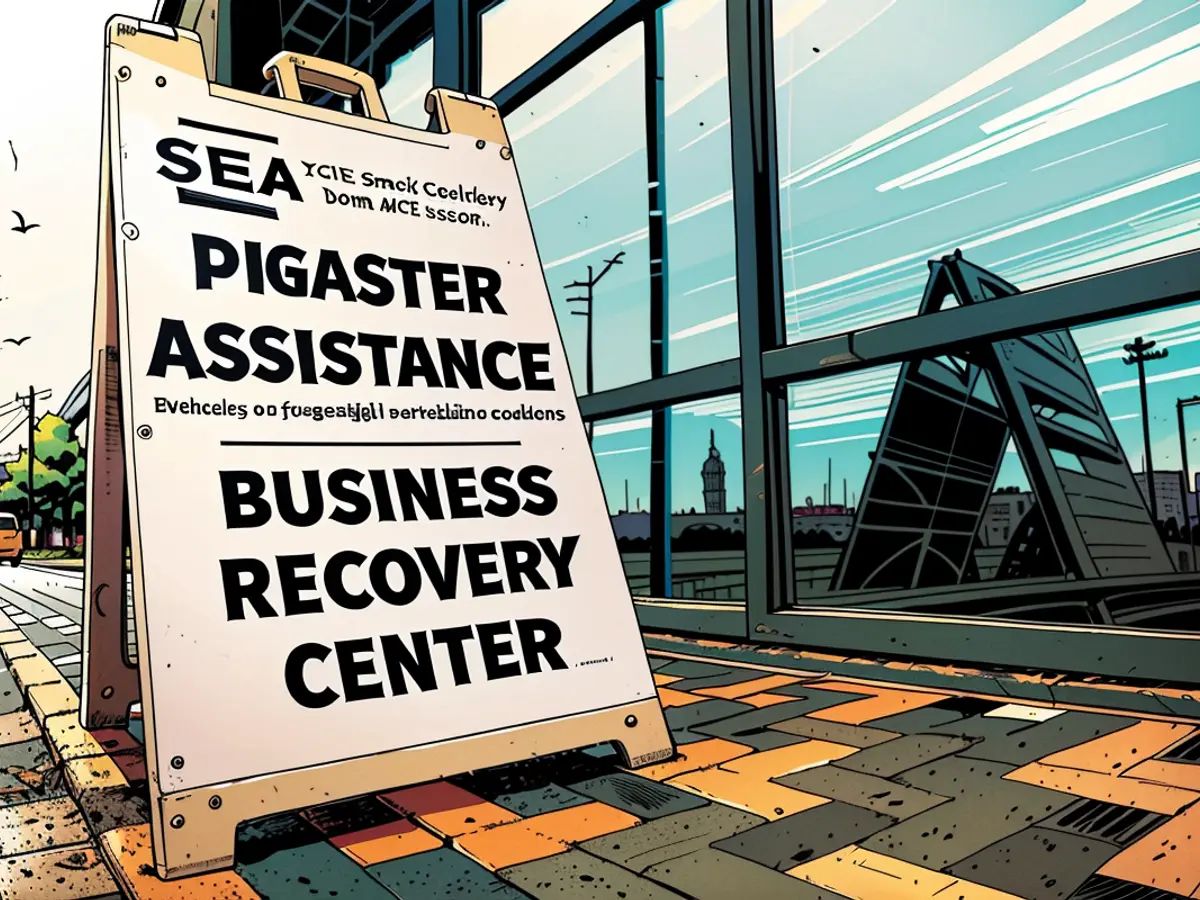The Small Business Administration's disaster loan program has been depleted following successive hurricanes.
In a declaration, President Biden labeled the SBA's depleted disaster loan program as a "crucial lifeline" for small businesses, homeowners, and renters impacted by catastrophes.
The impending depletion of the SBA's disaster fund may push Congress to confront the severe predicament concerning disaster relief funding upon their return to Capitol Hill in November.
Speaker Johnson pledged that this and other disaster programs will be replenished once Congress reconvenes, urging citizens to persist in applying for these loans, stated Biden in his announcement. He also clarified that the SBA would proceed with processing applications and would disburse loans as soon as financing becomes available courtesy of Congress.
The SBA's disaster aid fund differs from the Federal Emergency Management Agency's (FEMA) disaster aid fund, which offers support to individuals affected by hurricanes. As of Tuesday, FEMA's fund stood at $8.5 billion, informed an FEMA representative to CNN.
The SBA will cease offering new loans for direct and low-interest long-term loans to disaster victims until Congress authorizes additional funding, as per an official release. However, it encourages small business owners affected by Helene and Milton to still submit applications for aid.
"While we await Congress to provide essential funding, we strongly urge eligible businesses and households to submit applications for SBA disaster loans," Administrator Isabel Casillas Guzman stated. "SBA will continue to assist homeowners, renters, businesses, and nonprofits in handling their applications to ensure they receive aid promptly upon funding restoration."
The fund's balance has steadily declined as the agency grappled with the aftermath of powerful back-to-back hurricanes Helene and Milton. The spokesperson emphasized that FEMA possessed adequate resources "to continue with the response and recovery efforts" for both hurricanes.
Following a $20 billion injection from Congress to tackle hurricane season, FEMA spent approximately $11.5 billion from its Disaster Relief Fund within two weeks. Prior to Milton hitting Florida last week, the agency had spent $9 billion. A substantial portion of the money already disbursed went to reimburse other states for earlier catastrophes, enabling FEMA to do so once it had exited immediate needs financing on October 1.
This swift spending pace reflects the multitude of disasters that have struck the U.S. throughout the summer – still in the process of being managed – prior to Helene and Milton's landfall.
The SBA has received around 37,000 applications for aid from those affected by Hurricane Helene and has already offered more than 700 Helene loans totaling approximately $48 million. Furthermore, the SBA has received over 12,000 additional applications from Hurricane Milton survivors.
The SBA's depleted disaster loan program highlights the significant role of politics in providing aid to small businesses and individuals affected by natural disasters. Speaker Johnson's pledge to replenish disaster programs once Congress reconvenes underscores the importance of legislative support in addressing these crises.








